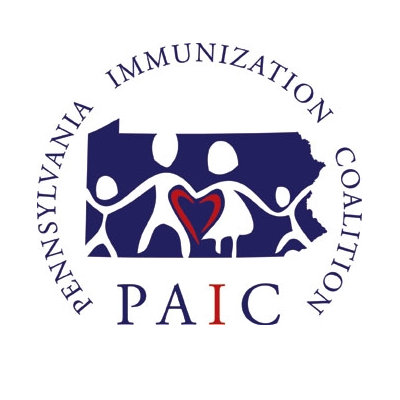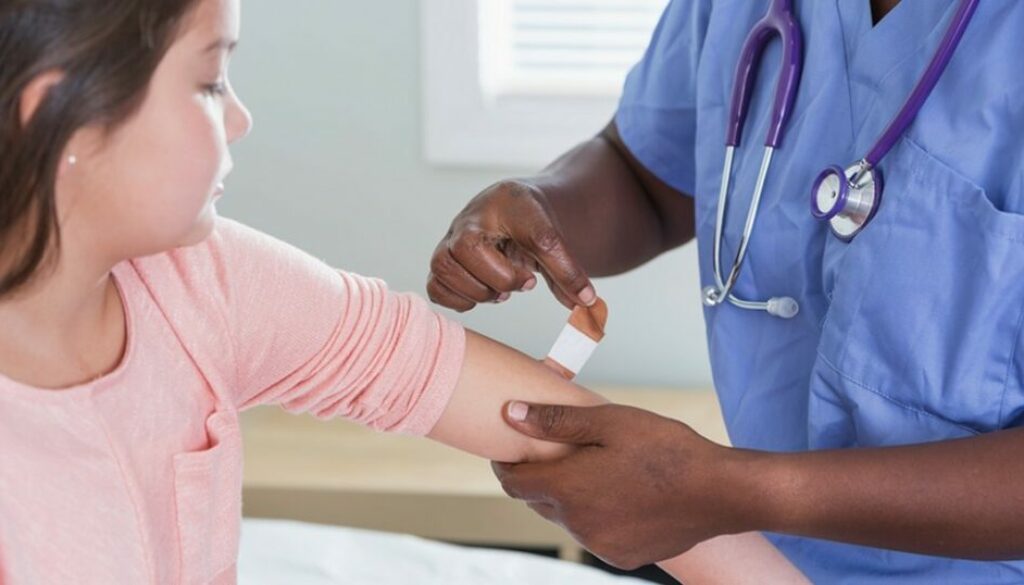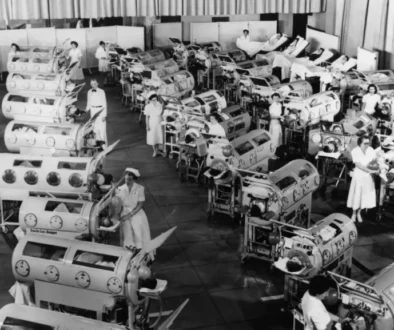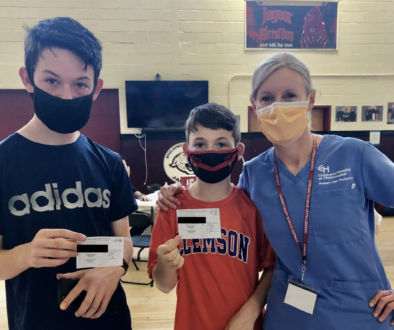Parent to Parent: A Local PA Pediatrician Explains Why He Got His Child Vaccinated for COVID-19, and Why you Should too
A Conversation with Dr. Cisneros
Pennsylvania has made great strides toward battling the highly infectious COVID-19 virus, including administering more than 20 million doses of the vaccine, with nearly 65% of the total PA population fully vaccinated as of January 2022. However, there has been a dramatic spike in the number of cases, especially in children. Across the US, more children than ever are being hospitalized with COVID-19 as both the Delta and Omicron variants surge.
Although children are at a lower risk of severe illness compared to adults, COVID-19 cases in children can result in hospitalizations, deaths, multisystem inflammatory syndrome in children, and other unknown long-term complications, according to the Centers for Disease Control and Prevention. It is estimated that an average of 672 children were admitted to hospitals every day in the last week in December 2021, and state data indicates that 16 children have died in our Commonwealth since the start of the pandemic.
Not only can COVID-19 be fatal, but we know that children can still become infected with no symptoms and quickly spread the virus among family members, friends, classmates, teachers, and another community member who may be immunocompromised, putting many at serious risk for illness or hospitalization.
It is more important than ever to get children vaccinated against COVID-19 to help build community immunity and ensure that they stay in the classroom, after-school activities, and social events with loved ones in 2022.
The FDA approved the Pfizer-BioNTech COVID-19 vaccine for children ages 5-11 with nearly 9 million pediatric doses administered since the early November authorization. The CDC recommends the Pfizer-BioNTech COVID-19 vaccine for children ages 5-11 and a booster for children aged 12-17 if it has been longer than five months since their final dose. The recommendation follows the review by experts from the Centers for Disease Control advisory panel (ACIP) and Prevention and the US Food and Drug Administration (FDA) advisory panel. The pediatric Pfizer vaccine is administered as a two-dose primary series, three weeks apart, and is a lower dose than the dosage for those ages 12 and older. Clinical data examined by FDA has shown that the vaccine is safe and 90.7% effective in preventing COVID-19 in children ages 5 through 11.
Understandably, some parents have remaining concerns about the vaccine. Still, it is essential for parents to know that COVID-19 vaccines have gone through extensive safety testing and were required to match the same standards as other vaccines such as chickenpox and polio, which have been given to kids for many years. With over 9 million pediatric doses already administered, there have only been 100 reports to the CDC’s Vaccine Adverse Reporting System (VAERS). They included 29 reports of fever, 21 reports of vomiting, and 10 serious reports of seizure, although the CDC team reports that in some of the seizure cases other underlying factors were potentially involved
The pediatric COVID-19 vaccine rollout has been a welcome relief for many parents after almost two years of virtual schooling and missed events. Dr. Gabriel Cisneros, a pediatrician with Children’s Community Pediatrics Bass Wolfson in Pittsburgh and Medical Director of Children’s Express Care Shadyside, is one of those parents. It is normal to have questions, so Dr. Cisneros answered some about getting his own 8-year-old daughter vaccinated.
Why did you choose to get your daughter vaccinated?
I wanted my daughter to be vaccinated to protect her from COVID-19 illness and to help reduce the spread of infection. Since the pandemic began, we had gone through so much in trying to avoid getting sick: online school, masks, canceling trips and gatherings with friends and family. Finally, when the vaccine was available for her, and it was shown in studies to be very safe and effective we got her vaccinated as soon as we could. I felt like the more people who got vaccinated the better off we would all be.
How did you talk to your daughter about the vaccine?
When it was announced that the COVID vaccine was authorized for children ages 5-11 my wife and I told our 8-year-old daughter that she could get it and that it would protect her from getting sick from coronavirus. We explained that she would need two small pokes 3 weeks apart, her arm might feel a little sore after and she might even feel a little tired later, but we would reward her with a prize. She said she was a little nervous getting the first dose but when she realized the injection didn’t hurt, she was fine the second time around.
Were you concerned about potential side effects?
I really wasn’t concerned about side effects because I had read a study in the New England Journal of Medicine that found among the children in her age group who received the vaccine there were no serious adverse events reported1.
After the first dose she didn’t have any complaints. I kept asking her “How do you feel?” and she’d reply “Fine!” with a quit-asking-and-leave-me-alone sort of tone. When she got her second dose the following morning, she complained of her arm feeling sore and so we gave her a dose of ibuprofen which helped. She went to school and when she came home, I noticed she seemed a little tired, so she rested on the couch, and I read her a story. By the next day she was completely back to her regular self.
What would you say to a parent who does not want to get multiple vaccines in one visit, like the flu and COVID-19 vaccine?
Parents sometimes say they don’t want their child to receive multiple vaccines at once e.g., COVID-19 and flu. I always explain that it’s totally safe for the child to get more than one vaccine at a time. For example, we routinely administer multiple vaccines for infants during their check-ups. It’s also generally more convenient to get the vaccines that are due at once rather than go through the trouble of having to return.
How do you feel about COVID-19 vaccine mandates in schools?
I think people forget that there already exist vaccine mandates for school attendance. Diphtheria, tetanus, pertussis, measles, mumps, rubella, polio, varicella, hepatitis B and meningitis vaccines are all required by state law for school attendance in Pennsylvania. So to me it makes a lot of sense and is really not an extreme viewpoint to say that COVID vaccines should also be required for school attendance, especially when you consider just how prevalent coronavirus currently is, with millions of children in the U.S. already infected, thousands of children hospitalized from COVID-19 and that CDC reported it to be the 8th leading cause of death in children 5-11 in the past year. I think a major barrier to implementing this policy is the Pfizer vaccine’s current Emergency Use Authorization status in this age group. Once it receives full regulatory approval from the FDA then I expect a greater push toward a COVID vaccine mandate for schools.
How can parents protect their kids who are younger than 5?
Parents can protect their children ages 5 and younger by ensuring that family members eligible to receive the COVID vaccine are fully vaccinated. Avoiding close contact with sick people, good hand hygiene and wearing masks can help further protect these young children. If anyone in the household develops COVID symptoms such as fever, cough, congestion, sore throat, or loss of taste/smell then they should get a COVID test and isolate for 10 days if the result is positive to prevent further spread.
With the omicron variant surging across the nation, the best way to protect your family is by getting your 5- to 11-year-old children vaccinated as soon as possible. U.S. coronavirus cases are currently higher than they’ve been previously, with an estimated 600,000 new cases reported daily. Masking in schools and other indoor settings remains helpful, but it is crucial that parents try to ensure everyone their child is in contact with is vaccinated and boosted upon eligibility. COVID-19 vaccination is the best option to keep families safe and well during the ongoing pandemic. Please visit vaccines.gov to find a COVID-19 vaccine near you.

Dr. Cisneros is a Pediatrician with Children’s Community Pediatrics Bass Wolfson in Pittsburgh. Medical Director of Children’s Express Care Shadyside. Co-chair of the Advocacy Committee of the Pennsylvania Chapter of the American Academy of Pediatrics.




